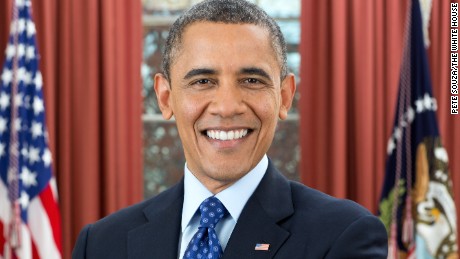- About Us
- Search
- Need Help?
- Donate
- Login/Register
Latest Entries
Actions Menu
Blog Roll
- 4F Facebook Page
- Turn Up The Night with Kenny Pick
- Stephanie Miller Show
- The Tim Corrimal Show
- The Rachel Maddow Show
- Angry Americans with Paul Rieckhoff
- Thom Hartmann Program
- Turnips! Fans of Turn Up the Night Facebook Page
- Snopes.com
- Factcheck.org
- Official White House Page, if you must.
- The Brad Blog / Green News Report
- The Poorly Written Political Blog (Joe Santorsa)
Because HE signed it.
Author: TriSec
Date: 10/07/2017 11:35:34
Good Morning.
Let's take a look a few years back at a certain governor of this Commonwealth. You might recognize his picture.

The then fairly benign Mitt Romney was governor of Massachusetts from 2003-2007. His administration was characterized by not much, in all honesty. Like I said, 'fairly benign', and he spent most of his tenure tangling with the democratic-dominated state legislature.
A few things were accomplished here in those days, but you might be familiar with his signature legislation of the era.
It's worked fairly well for us here. While healthcare costs always rise, they have stabilized, and our cost increases here are far less than in other parts of the country. The big deal is actually about prescriptions. Some, but not all, have minimal or even no copays; something unheard of before the legislation went through. And roughly 97% of all citizens now have insurance. Which means more people are seeing doctors for routine and preventative care, which over time has led to a healthier society and a further reduction of costs.
But now think about the big picture a wee bit. Many things pioneered here in Massachusetts have gone on to have significant national impact. A significant number of Founding Fathers have ties to this Commonwealth, and a gentleman named John Adams wrote a document here that we still use, that was the model for another document penned by Thomas Jefferson that we should all know and love.
And so it was with "Romneycare". Some years after it had been developed, tried, and some of the kinks worked out, our legislation served as the groundwork for the Affordable Care Act. You'd almost expect the national Republicans to be proud. After all, the Republican Party was actually founded by several Massachusetts men, and for the middle part of our history, the Republicans were the more sensible, fair, and even open and tolerant party, in marked contrast to those Carpetbaggers we used to call Democrats.
The national version of RomneyCare was signed in 2010; the major provisions began operating across the land in 2014. I won't deny there haven't been problems, and parts of it may not have worked as intended, but overall it's done fairly well.
So what's the problem? Why all the histrionics?

Really, just look at the color of that skin!!
Ă‚Â
Let's take a look a few years back at a certain governor of this Commonwealth. You might recognize his picture.

The then fairly benign Mitt Romney was governor of Massachusetts from 2003-2007. His administration was characterized by not much, in all honesty. Like I said, 'fairly benign', and he spent most of his tenure tangling with the democratic-dominated state legislature.
A few things were accomplished here in those days, but you might be familiar with his signature legislation of the era.
Romney sought to bring near-universal health insurance coverage to the state. This came after Staples founder Tom Stemberg told him at the start of his term that doing so would be the best way he could help people. Another factor was that the federal government, owing to the rules of Medicaid funding, threatened to cut $385 million in those payments to Massachusetts if the state did not reduce the number of uninsured recipients of health care services. Although the idea of universal health insurance had not come to the fore during the campaign, Romney decided that because people without insurance still received expensive health care, the money spent by the state for such care could be better used to subsidize insurance for the poor.
Determined that a new Massachusetts health insurance measure not raise taxes or resemble the previous decade's failed "Hillarycare" proposal at the federal level, Romney formed a team of consultants from diverse political backgrounds to apply those principles. Beginning in late 2004, they devised a set of proposals that were more ambitious than an incremental one from the Massachusetts Senate and more acceptable to him than one from the Massachusetts House of Representatives that incorporated a new payroll tax. In particular, Romney pushed for incorporating an individual mandate at the state level. Past rival Ted Kennedy, who had made universal health coverage his life's work and who, over time, had developed a warm relationship with Romney, gave the plan a positive reception, which encouraged Democratic legislators to cooperate. The effort eventually gained the support of all major stakeholders within the state, and Romney helped break a logjam between rival Democratic leaders in the legislature.
On April 12, 2006, the governor signed the resulting Massachusetts health reform law, commonly called "Romneycare", which requires nearly all Massachusetts residents to buy health insurance coverage or face escalating tax penalties, such as the loss of their personal income tax exemption. The bill also established means-tested state subsidies for people who lacked adequate employer insurance and whose income was below a threshold, using funds that had covered the health costs of the uninsured. He vetoed eight sections of the health care legislation, including a controversial $295-per-employee assessment on businesses that do not offer health insurance and provisions guaranteeing dental benefits to Medicaid recipients.[203][206] The legislature overrode all eight vetoes, but the governor's office said the differences were not essential. The law was the first of its kind in the nation and became the signature achievement of Romney's term in office.
It's worked fairly well for us here. While healthcare costs always rise, they have stabilized, and our cost increases here are far less than in other parts of the country. The big deal is actually about prescriptions. Some, but not all, have minimal or even no copays; something unheard of before the legislation went through. And roughly 97% of all citizens now have insurance. Which means more people are seeing doctors for routine and preventative care, which over time has led to a healthier society and a further reduction of costs.
But now think about the big picture a wee bit. Many things pioneered here in Massachusetts have gone on to have significant national impact. A significant number of Founding Fathers have ties to this Commonwealth, and a gentleman named John Adams wrote a document here that we still use, that was the model for another document penned by Thomas Jefferson that we should all know and love.
And so it was with "Romneycare". Some years after it had been developed, tried, and some of the kinks worked out, our legislation served as the groundwork for the Affordable Care Act. You'd almost expect the national Republicans to be proud. After all, the Republican Party was actually founded by several Massachusetts men, and for the middle part of our history, the Republicans were the more sensible, fair, and even open and tolerant party, in marked contrast to those Carpetbaggers we used to call Democrats.
The national version of RomneyCare was signed in 2010; the major provisions began operating across the land in 2014. I won't deny there haven't been problems, and parts of it may not have worked as intended, but overall it's done fairly well.
So what's the problem? Why all the histrionics?

Really, just look at the color of that skin!!
Ă‚Â







